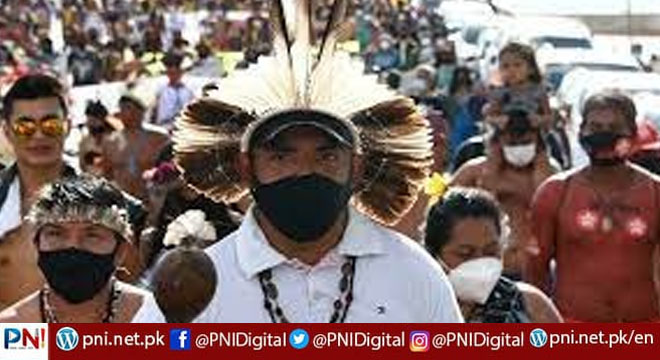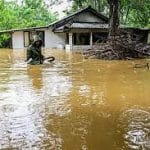Marseille, Sept 6 (AFP/APP):Newly armed with voting rights, indigenous peoples have come to the world’s leading conservation congress meeting in the French city of Marseille both hopeful and wary.
They have demands, and will not go quietly into the night, their representatives say.
“It makes no sense for consultants and companies to come to teach us how to protect what we have always successfully protected,” said Jose Gregorio Diaz Mirabal of COICA, which represents more than two million indigenous people across nine Amazon nations.
Their boldest proposal is for a measure to ensure that 80 percent of the Amazon is declared a protected area by 2025.
The reasoning is simple.
“Half of [tropical] forests, and 80 percent of biodiversity” in the world are found in indigenous territories, said Peter Seligmann, a veteran conservationist who set up an NGO — Nia Tero (Our Land) — run in part by indigenous leaders.
Walter Quertehuari is a leader of the Wachiperi people in southeastern Peru. His commune in the Amarakaeri reserve is recognized on the IUCN Green List for its work in protecting biodiversity.
Unable to attend the International Union for the Conservation of Nature (IUCN) meet in person due to Covid restrictions, Quertehuari reminded participants by videolink that his people have safeguarded more than 400,000 hectares of forest for more than 15 years.
By staving off the deforestation taking place all around them, he explained, his people have not only protected a crucial biodiversity hotspot but prevented planet-warming CO2 from leaching into the atmosphere.
Now it’s time for a payday.
“We are talking about how carbon credits from the reserve can be sold,” he told the IUCN’s first Indigenous Summit.
Paying to restore or maintain healthy forests in order to fight climate change is not a new idea, and has been embedded in the UN climate convention for many years.
But such initiatives have been plagued with accounting and oversight problems, and some environmentalists say the concept is fundamentally flawed.
“There are indigenous communities that say: ‘As soon as you put a monetary value on a tree, someone is going to want to cut it down, because that’s the story of our relationship with Westerners’,” said Seligmann.
But “indigenous communities have the right to self-determination,” he added.
Follow the PNI Facebook page for the latest news and updates.









